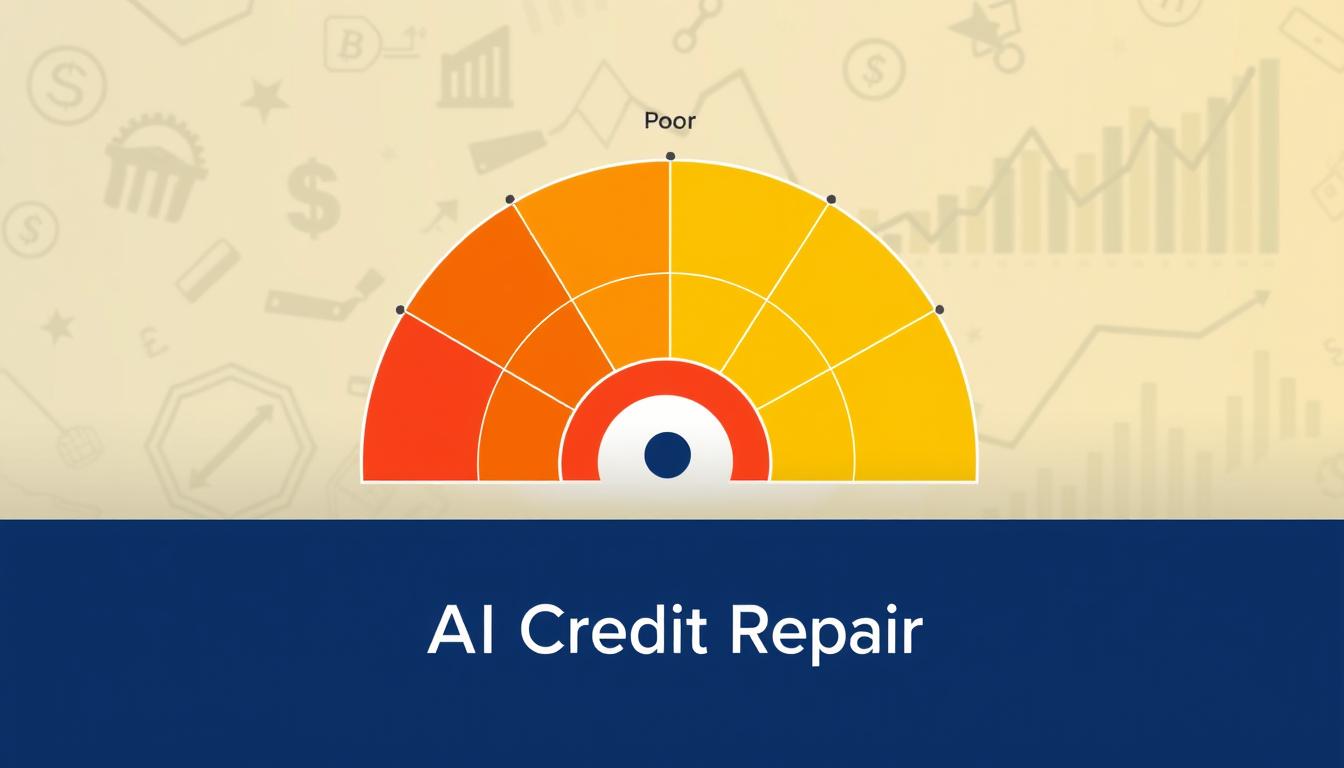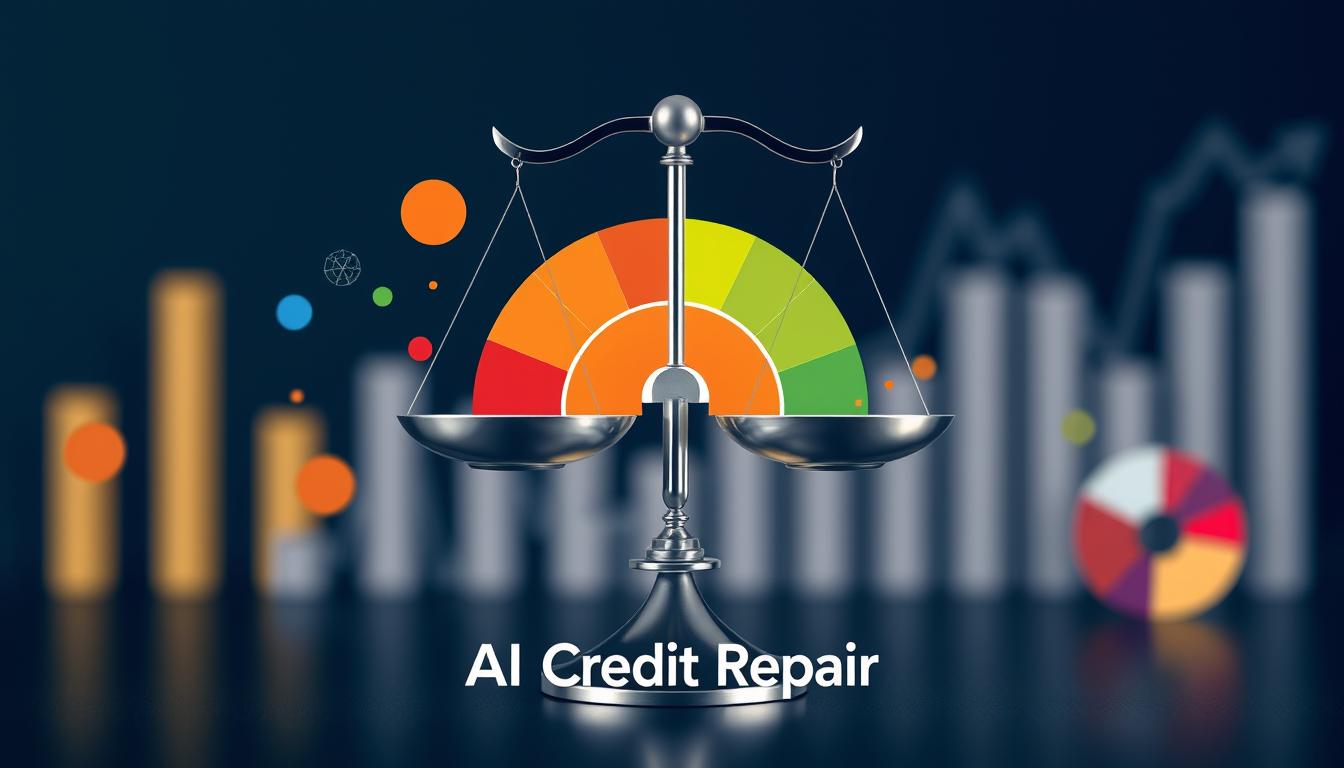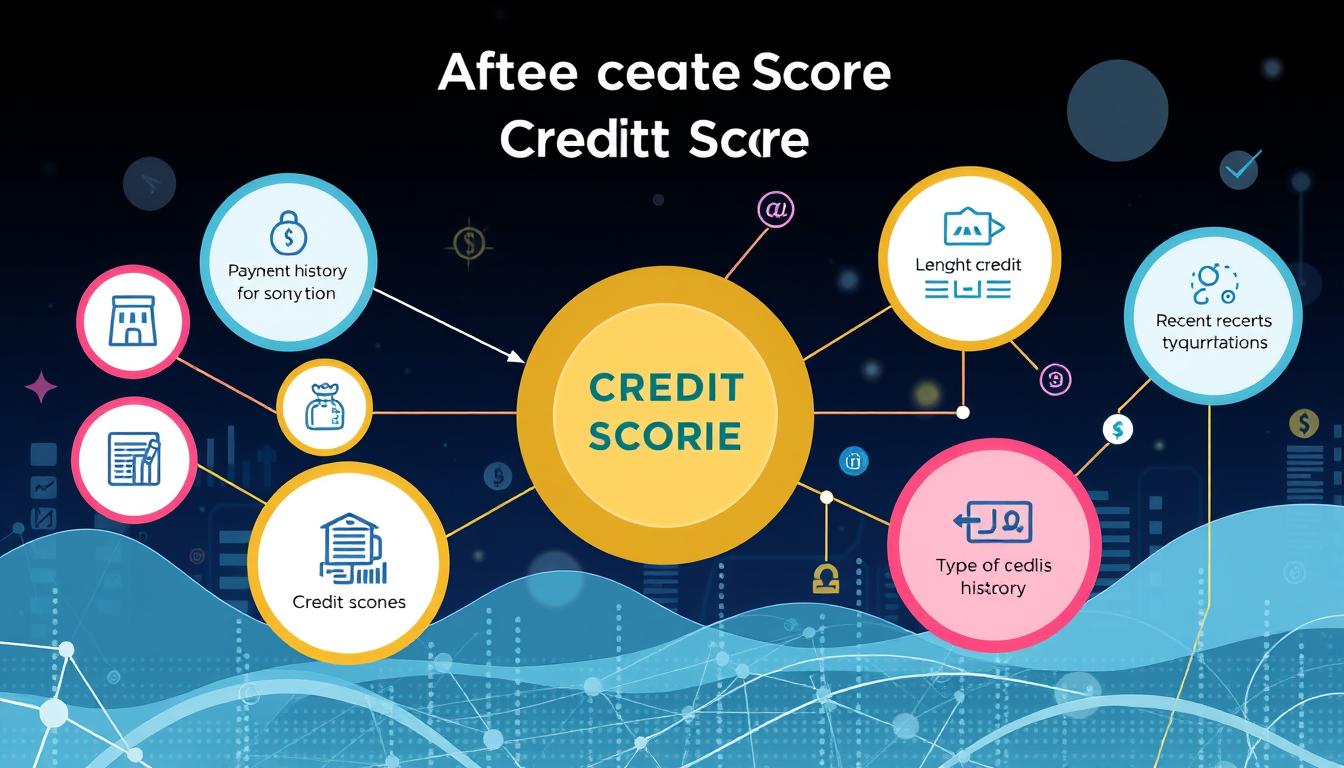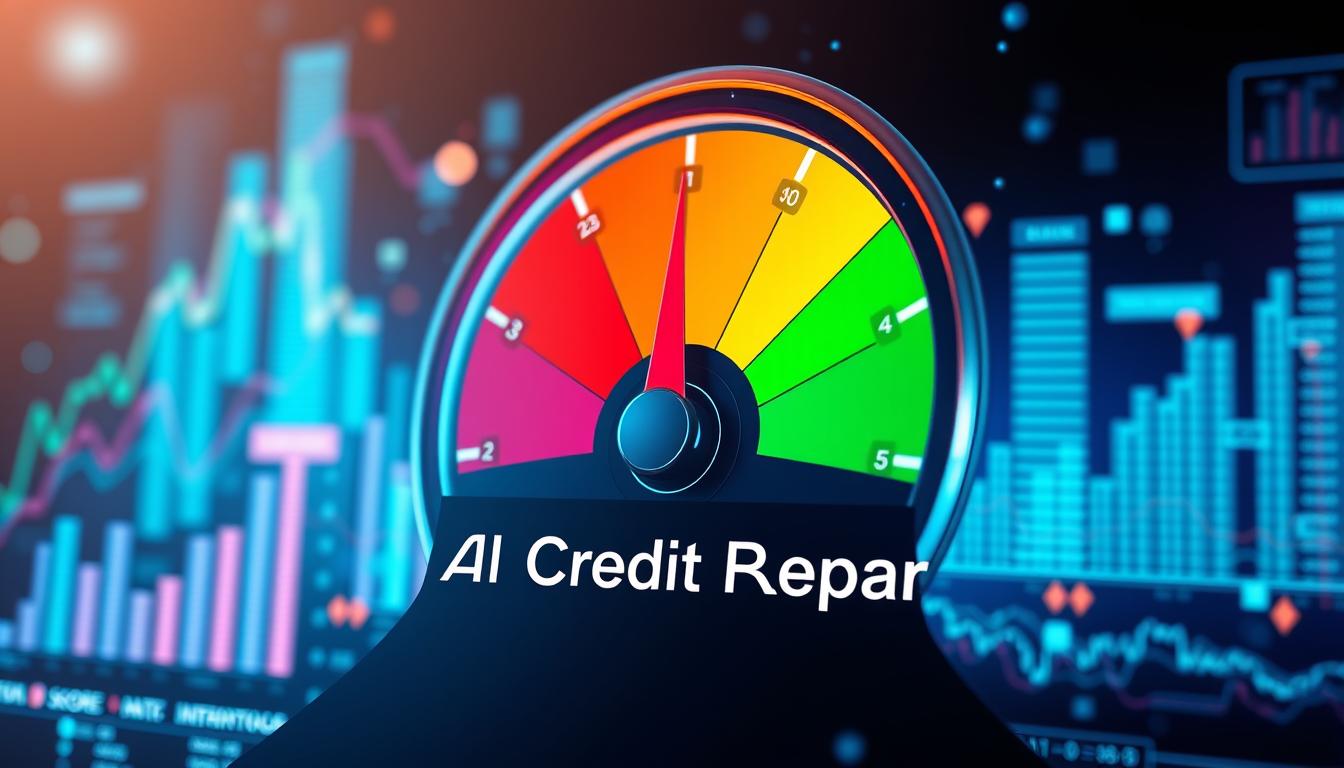Your credit score is vital for your financial opportunities. It determines your ability to get mortgages and credit cards. The middle score, or median credit score, is key to understanding your creditworthiness.
This score provides insights into your financial health. It helps guide you towards making better financial decisions. Understanding its importance can improve your overall financial situation.
Key Takeaways
- The median credit score is the middle value in a range of credit scores, reflecting the typical or average consumer’s creditworthiness.
- Knowing your median credit score can help you understand how you compare to the national average, which can impact your access to credit and the interest rates you receive.
- Factors like payment history, credit utilization, and credit mix all contribute to your median credit score, which ranges from 300 to 850.
- A higher median credit score indicates a lower credit risk, making it easier to qualify for loans, credit cards, and other financial products on favorable terms.
- Regularly monitoring your credit report and taking steps to build and maintain a healthy credit profile can help you achieve and maintain a strong median credit score.
Understanding the Importance of Credit Scores
Credit scores are vital to our financial lives. They affect many decisions and opportunities. These numbers represent how trustworthy we are with credit.
Credit scores impact getting loans, credit cards, and even renting homes. They can open doors or create obstacles in our financial journey.
The Role of Credit Scores in Financial Decisions
Lenders use credit scores to judge lending risk. A higher credit score often means lower interest rates. Lower scores may lead to higher rates or loan rejections.
Good credit scores are key for favorable terms on mortgages and loans. They can save you money and improve your financial options.
Credit Score Ranges and Their Implications
Credit scores range from 300 to 850. Higher scores show lower risk to lenders. A credit score above 700 is good, while above 800 is excellent.
Lower credit score ranges can make getting credit harder. They may also affect interest rates and renting options. Understanding credit score interpretation helps make smart money choices.
| Credit Score Range | Interpretation |
|---|---|
| 800-850 | Excellent credit |
| 740-799 | Very good credit |
| 670-739 | Good credit |
| 580-669 | Fair credit |
| 500-579 | Poor credit |
| 499 and below | Very poor credit |

What is the Median Credit Score?
The median credit score shows the middle point of all credit scores. It’s a key measure of overall creditworthiness in a population. This score splits the group in half, with 50% above and 50% below.
To find the median, all scores are arranged from lowest to highest. The middle value becomes the median. This method gives a more accurate picture of typical credit scores.
Extreme values don’t skew the median like they do with averages. Knowing your score compared to the median helps gauge your financial health. It can guide decisions on loans, credit cards, and even renting.
| Credit Score Range | Percentage of Population |
|---|---|
| 800-850 | 21% |
| 740-799 | 25% |
| 670-739 | 21% |
| 580-669 | 17% |
| 500-579 | 10% |
| 300-499 | 6% |
This table shows how credit scores are spread across the population. It highlights why the median credit score is so important for measuring creditworthiness.

Factors Affecting the Median Credit Score
Several factors shape the median credit score. Credit history, payment patterns, and credit utilization ratio are crucial elements. Understanding these can help borrowers boost their credit standing.
Credit History and Payment Patterns
Your credit history is vital in determining your credit score. It includes the age of your accounts and payment record. A long, positive history shows responsible money management.
This can greatly improve your median credit score. However, missed or late payments can hurt your score. They suggest a higher risk of future defaults.
Credit Utilization Ratio
The credit utilization ratio compares your current balances to your credit limits. It’s another key factor affecting credit score. Keeping this ratio below 30% is ideal.
This shows lenders you use credit wisely. You’re less likely to default on payments. High utilization can adversely impact your credit utilization impact and lower your score.
| Factor | Impact on Median Credit Score |
|---|---|
| Credit History and Payment Patterns | Positive credit history and on-time payments can significantly boost your median credit score, while missed or late payments can negatively impact it. |
| Credit Utilization Ratio | Maintaining a low credit utilization ratio (below 30%) is recommended, as it positively impacts your credit score calculation. High credit utilization can lower your median credit score. |

“Your credit history and responsible credit usage are the key factors that determine your median credit score.”
What Is The Middle Score For Credit?
The middle score for credit is vital for managing your financial health. It’s the median of all credit scores. This score shows how creditworthy you are to lenders.
A good credit score typically ranges from 670 to 739. Half of people have scores above this range. The other half fall below it.
A middle credit score can affect your financial choices. It impacts loan approvals, interest rates, and credit card applications. Lenders view people with median scores as responsible borrowers.
Scores below the median may lead to higher interest rates. They can make getting credit harder. Scores above the median offer better financial opportunities.
A healthy median credit score is key to reaching financial goals. It helps when buying a home or getting a car loan.

Knowing about middle credit scores helps you make smart choices. You can work to improve or maintain your creditworthiness. This leads to a more secure financial future.
Interpreting Your Median Credit Score
Your median credit score is key to assessing your financial health. It ranges from 300 to 850. This score shows lenders your creditworthiness and affects your access to credit.
Your score influences interest rates and financial opportunities. Understanding it helps you make informed financial decisions.
The Impact of a Good Median Score
A good median credit score is generally 700 or higher. It can greatly improve your financial life. People with good credit scores enjoy several benefits.
- Easier approval for loans, credit cards, and mortgages
- Lower interest rates on borrowing, saving you thousands of dollars over the life of a loan
- Higher credit limits, allowing you to maintain a low credit utilization ratio
- Increased chances of securing favorable terms for rental agreements, utility contracts, and even job applications
- Enhanced interpreting credit score and overall financial flexibility
A low median credit score can limit your access to credit. It may result in higher interest rates. This can hinder your ability to achieve financial goals.
Understanding the median credit score impact is crucial. Striving to maintain a good credit score is vital for long-term financial well-being.
“A good credit score is like a golden ticket to financial opportunities. It opens doors, unlocks better rates, and empowers you to take control of your financial future.”
Strategies to Improve Your Median Credit Score
Your median credit score can be improved with effective strategies. Paying bills on time and reducing credit card balances are two key steps. These actions can significantly impact your credit score.
Paying Bills on Time
Making on-time payments is crucial for a healthy credit score. Payment history accounts for 35% of your credit score. Pay all bills, from credit cards to utilities, by their due dates.
A single late payment can harm your credit score for up to seven years. Set up automatic payments or reminders to avoid missed or late payments.
This practice shows lenders your reliability in meeting financial obligations. It’s a simple yet powerful way to improve your credit score.
Reducing Credit Card Balances
Your credit utilization ratio is another important factor in credit score strategies. It measures the credit you’re using compared to your total available credit.
Aim to keep your credit utilization below 30%. This helps maintain a healthy credit profile and boosts your median credit score.
Focus on paying down your credit card balances. Even making minimum payments on some cards can help. This lowers your overall credit utilization.
“Paying your bills on time and keeping your credit card balances low are two of the most effective ways to improve your median credit score and strengthen your financial profile.”
Monitoring Your Credit Score and Reports
Keeping an eye on your credit score and reports is vital for a healthy credit profile. Regular checks help spot and fix errors that could affect your median credit score.
Accessing Your Credit Information
Getting your credit report review is easy. You can get a free report from each major credit bureau yearly. Visit AnnualCreditReport.com to request your free reports.
This helps you stay on top of your credit score tracking. It’s a simple way to keep tabs on your financial health.
Reviewing Your Credit Reports
When looking at your credit reports, check these key areas:
- Accounts: Ensure all your open and closed accounts are accurately reported.
- Payment History: Verify that your payment history is accurately reflected, with no late or missed payments.
- Credit Utilization: Check that your credit card balances and credit limits are correctly reported.
- Errors: Identify any inaccuracies, such as accounts that don’t belong to you or incorrect personal information.
If you spot errors, contact the credit bureau to dispute them. They’ll work with you to correct any mistakes.
Monitoring Your Credit Score
Monitoring your credit score regularly gives you insights into your financial health. Many banks and credit card companies offer free credit score tracking services.
These tools help you stay informed about your credit standing. They’re a great way to keep an eye on your financial progress.
“Regular monitoring of your credit score and reports is key to a strong financial profile. It helps you spot and fix issues before they hurt your creditworthiness.”
Proactive monitoring of your credit score and reports keeps you informed about your finances. It helps you make better money choices and improve your credit health.
The Role of Credit Bureaus in Credit Scoring
Credit bureaus are vital in determining your credit score. These agencies collect and store your credit history. Lenders use this info to make financial decisions about you.
Understanding Credit Report Information
Your credit report holds data about your money habits. It includes payment history, credit use, and how long you’ve had credit. Credit bureaus like Experian, Equifax, and TransUnion gather this info from various sources.
Your credit report forms the basis of your credit score. This score shows how trustworthy you are with money. Lenders use it to decide if they should lend to you.
Your credit score can affect many areas of your life. It impacts your ability to get loans, good interest rates, and even jobs or housing.
- The three major credit reporting agencies in the United States are Experian, Equifax, and TransUnion.
- These credit bureaus collect information about your credit history, including your payment history, credit utilization, and length of credit history.
- Your credit report contains detailed information about your financial activities, which is used to calculate your credit score.
| Credit Bureau | Contact Information | Annual Credit Report |
|---|---|---|
| Experian | P.O. Box 2002, Allen, TX 75013 Phone: 1-888-397-3742 | www.annualcreditreport.com |
| Equifax | P.O. Box 740256, Atlanta, GA 30374 Phone: 1-888-766-0008 | www.annualcreditreport.com |
| TransUnion | P.O. Box 2000, Chester, PA 19016 Phone: 1-800-888-4213 | www.annualcreditreport.com |
Knowing how credit bureaus work can help you manage your credit better. Make sure your credit report information is correct. This will help you maintain a good financial record.
Maintaining a Healthy Credit Profile
A healthy credit profile is key to financial stability. Monitor your credit regularly and address issues promptly. Take steps to improve or maintain your median credit score for long-term financial well-being.
Check your credit reports from Experian, Equifax, and TransUnion often. Look for mistakes or strange activity. If you find errors, dispute them with the credit bureau right away.
Develop good credit habits to boost your profile. Pay all bills on time, as this greatly impacts your credit score. Keep credit card balances low compared to your total credit limit.
Show responsible credit use over time. This practice will help improve or maintain your median credit score. Consistent good habits lead to a stronger credit profile.

